Knowledge HubTM
How to protect your school from ransomware attacks

- Date Posted:
- Video Length: 90 seconds
- Written by: Exa Networks
The Coronavirus pandemic, and the subsequent UK lockdowns, school closures and remote working has had a lasting impact on schools and teachers.
We’re now in a situation where teachers and students have either used their own computer or a school-provided machine on a home network. This leads to vulnerabilities and potential opportunities for system infection and data theft, due to weaker security when it comes to home connections.
Cyber criminals have quickly adapted their techniques to exploit concerns relating to current trends, resulting in ransomware attacks becoming more focussed, and thus more effective.
What is ransomware?
Ransomware is a form of malware, primarily spread through phishing emails containing malicious attachments that encrypt data on anything from a single computer, all the way up to an entire network. Hackers instil fear and panic into their victims, by demanding a ransom be paid. However, even if the ransom is paid, there is no guarantee that data will be restored or unencrypted. This is known as wiper malware.
How does ransomware impact schools?
The education sector can be a tempting target to cyber criminals, causing huge implications for schools because of the amount of sensitive data they hold. Details about students, staff and financial information are at risk and hackers know if they can put that data in danger, schools will do anything to rescue it.
How to prevent attacks
Having a secure network that only those within your school have access to will help to protect your organisation from potential attacks. Segmenting your network can help limit the spread of ransomware; having a separate network for guests is one way to help prevent unwanted access to your school’s data.
While it’s not necessarily possible to be completely secure from ransomware and other malware attacks, there are some best practices that can help significantly cut down the risk of infection:
- Anti-virus:
- Use anti-virus software on all of your devices and configure it to automatically update.
- Updates:
- Install the latest software and app updates on all of your devices. This will help protect your device from viruses and hackers.
- Backups:
- Make regular backups of your most important files. Ensure that a backup is kept separate from your network, or in a cloud service designed for this purpose.
- Emails:
- A lot of malware – particularly targeted attacks – is spread through email. A message may pretend, and appear to be legitimate while containing malware in an attachment. Ensure an email is from a trustworthy source before interacting.
- Secure passwords:
- Create different passwords for each account and use random words (or letters) and numbers, ensuring this is memorable without using personal information (birthdays, names etc).
Improving employee’s awareness is critical when it comes to limiting the impact of ransomware. Treat suspicious emails with caution. Look at the domain name that sent the email. Check for spelling mistakes, review the signature and the legitimacy of the request. Hover over links to check where they lead to, never click on them without being sure.
Firewalls and Filtering
Firewalls prevent unauthorised access to an individual system or a network of computers. All messages, from an external source or leaving the system, pass through the firewall. If they do not meet security standards they are discarded, working as a filter to block suspicious and unsafe traffic.
Content filtering services block inappropriate websites which can contain malicious files that can harm your system. They can also block certain file types from being downloaded by unauthorised users, cutting down the chances of a ransomware attack.
What to do if you have been infected
If your school’s network has already been infected with malware you should contact the NCSC. Establishing effective incident management policies and processes will help a school to recover quickly from an attack. If you think you have fallen victim to fraud, contact Action Fraud on 0300 123 2040, and speak to their cyber crime specialists, who can offer useful advice on what to do next.
Related Knowledge Hub™ Articles
- 22 May 2025
- 30 May 2025
- 3 min read





